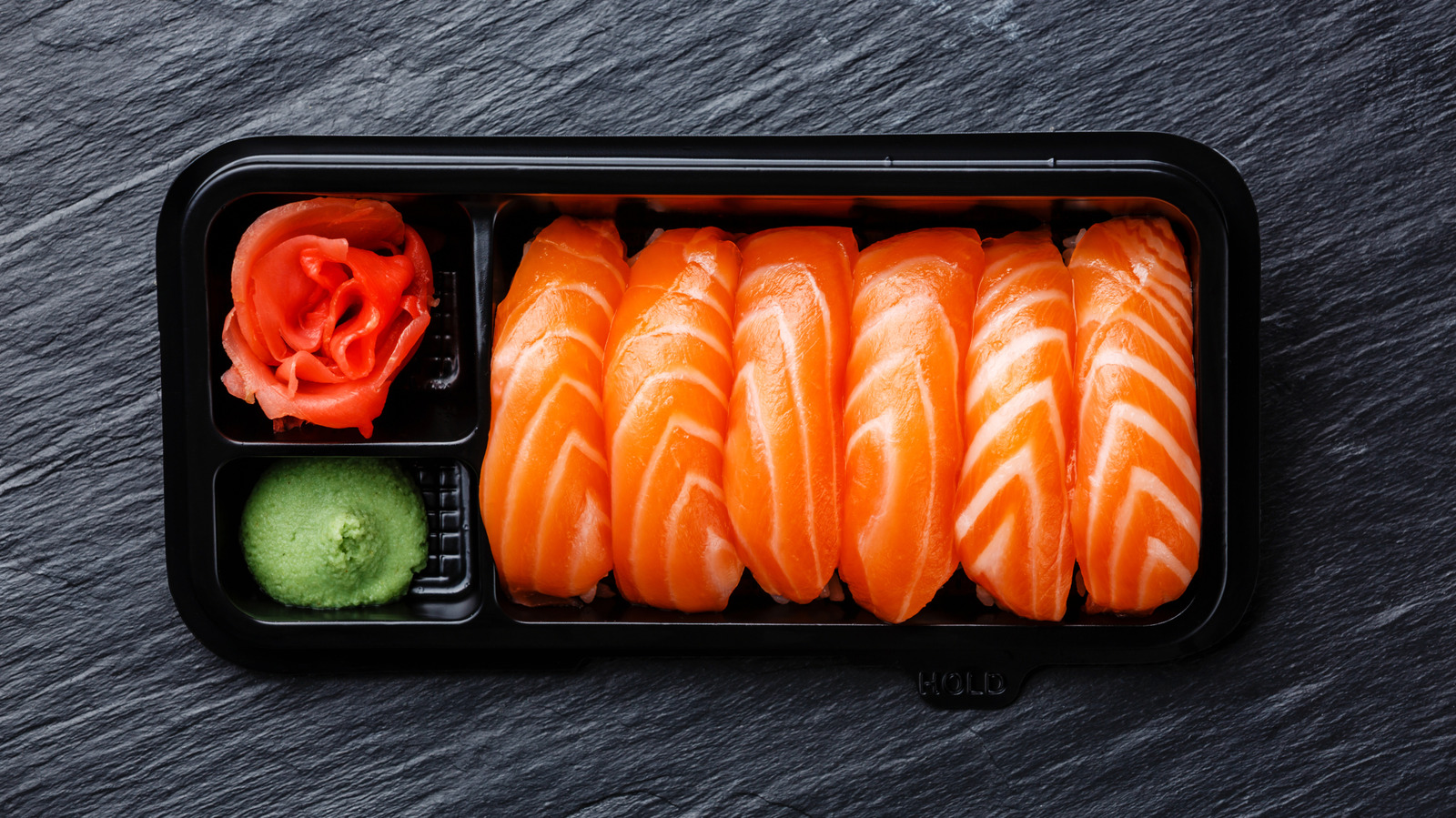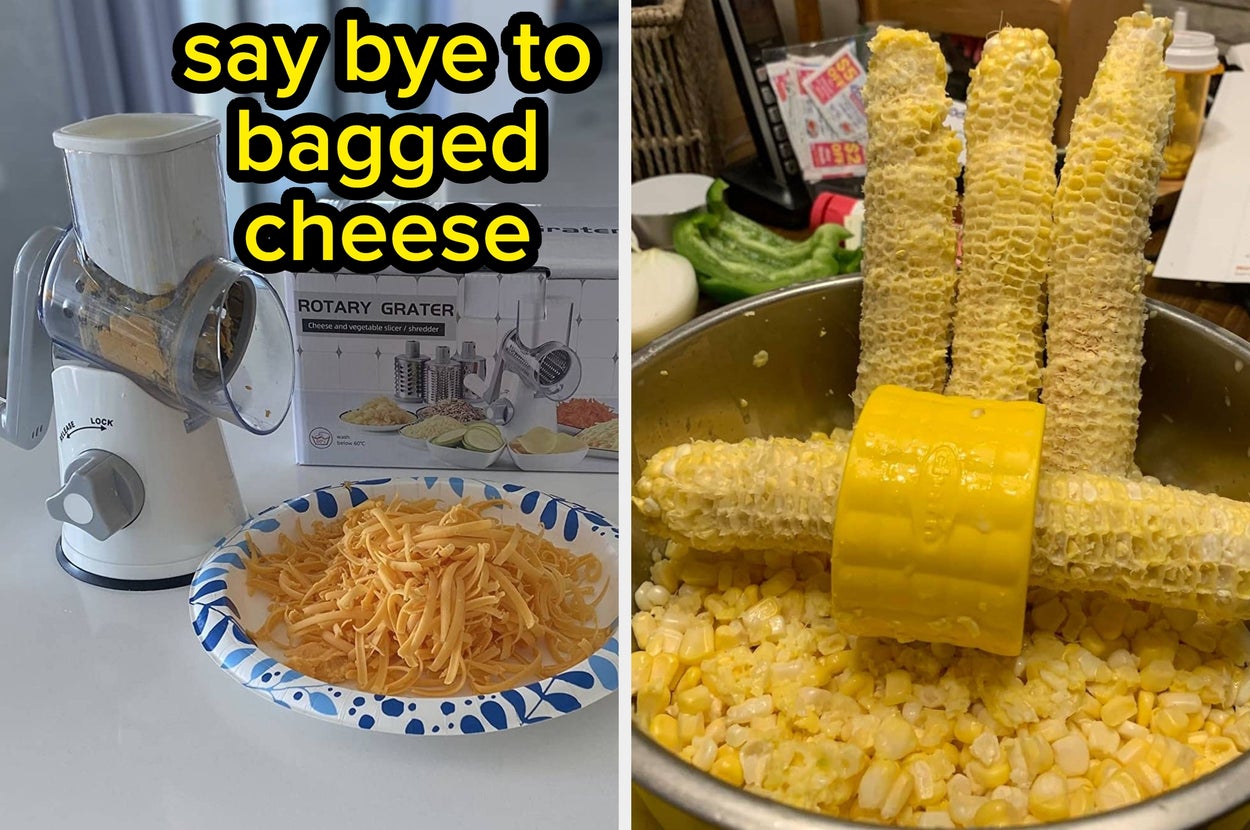The supermarket may not be your first choice for sushi, but you can find good quality selections there — if you know what to look for. Charles Adkins, executive chef at Umi Sushi & Oyster Bar in the Pechanga Resort Casino in Temecula, CA, spoke with Daily Meal and shared his top tips for spotting good sushi at the supermarket. Fish color is key to determining the freshness of store-bought sushi, and Adkins gave us a rundown of what common sushi fish should look like: "Tuna should be a deep to bright pink.
Salmon should appear orange-y to peach in color. Yellowtail needs to be a tan to beige but you can tell if it's starting to turn by any discoloration showing." Adkins explained that shrimp in store-bought sushi is usually cooked, so if your roll has shrimp, make sure that it's the correct whitish-pink color.

The avocado on top of some sushi rolls can also be a telling clue. "You may know a roll is several hours old if the avocado is turning brown," Adkins explained, adding that "Doesn't mean it's spoiled, just that it's been sitting too long." Another visual tip comes from the rice, which should retain a slight sheen if freshly rolled.
"If it's lost its sheen, chances are it was not made recently," he said. Tell-tale signs of good supermarket sushi Sushi chef Charles Adkins told us that, when visiting a grocery store, "it's usually a pretty good bet that when you see there's a sushi station, it's going to be fresh." He added that "it's always a better sign if there is a sushi chef or cook on site," as is often the case at Publix, which sells some of the best supermarket sushi available.
(And don't worry about Publix' $5 Wednesdays; discount sushi is generally safe to eat .) Higher-end stores, Adkins said, will also indicate on the package when the rolls were made — not just their expiration date, which you should also check. "If you find a store that indicates the time it's made, that proves a nice perk to purchasing grocery store sushi.
" There is, Adkins advised, one final, old school way to determine the freshness of store-bought sushi. "You can feel free to ask them when their fish came in or what days their fish shipments typically come in, then make sure you buy from them that day." Supermarket sushi will always taste slightly different than restaurant sushi, but with Adkins' advice you can strike the best possible balance of quality and convenience.
.
Food

Want Some Good Supermarket Sushi? These Are The Signs To Look For

You don't want to play a guessing game when it comes to buying sushi from a supermarket. So we asked a chef for some tips on choosing the freshest options.















